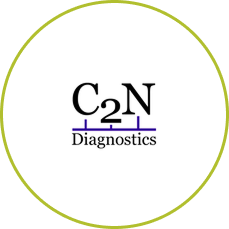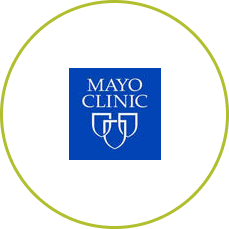GHR supports the following partners and efforts to prevent Alzheimer’s disease:
C2N Diagnostics launched PrecivityAD in 2020 as the world’s first blood
test for Alzheimer’s Disease to diagnose the presence of plaques.
The Dominantly Inherited Alzheimer Network Trials Unit (DIAN-TU) trial was launched in 2013 as the first-ever Alzheimer’s prevention trial. The trial showed it is possible to remove plaques, reduce tangles formation, and slow neurodegeneration.
The Dominantly Inherited Alzheimer Network Tau Next Generation (DIAN Tau NexGen) trial launched in 2021, and is the first trial to simultaneously treat plaques and tangles.
The Primary Prevention trial launched in 2021 and is the first trial to try to prevent plaque deposition before it begins.
The A4 trial launched in 2014 as the first Alzheimer’s prevention trial for the general population (age 65+). Trial results are expected in 2023.
The AHEAD 3/45 trial represents the next wave of prevention trials. Launched in 2020, this trial builds on the lessons of A4, testing a more potent therapy and starting with a younger population (55+).
The Mayo Clinic Study of Aging is a long term-term observation study designed to learn more about normal aging, mild cognitive impairment, Alzheimer's Disease, and other forms of dementia. MCSA has contributed to a new research framework adopted by the National Institute of Aging in 2018, which redefines Alzheimer’s Disease based on its underlying pathology rather than symptoms.
THE OPPORTUNITY: By 2050 Alzheimer’s disease prevalence is projected to reach 139 million people globally. In 2024, the cost to the U.S. health system alone was approximately $360 million. We have the chance to dramatically improve diagnosis, prevent symptoms and improve the lives of patients and their caregivers.
THE APPROACH: GHR partnered with Washington University and C2N Diagnostics to develop a blood test to increase the accuracy and accessibility of an Alzheimer’s diagnosis.
THE IMPACT: C2N developed a blood test that proved 90% accurate in primary care settings according to clinical research published in the Journal of the American Medical Association.
RESOURCES
The Promise of Alzheimer's Disease Prevention
READ MORE
Alzheimer's Association 2024 Facts and Figures
READ MORE







